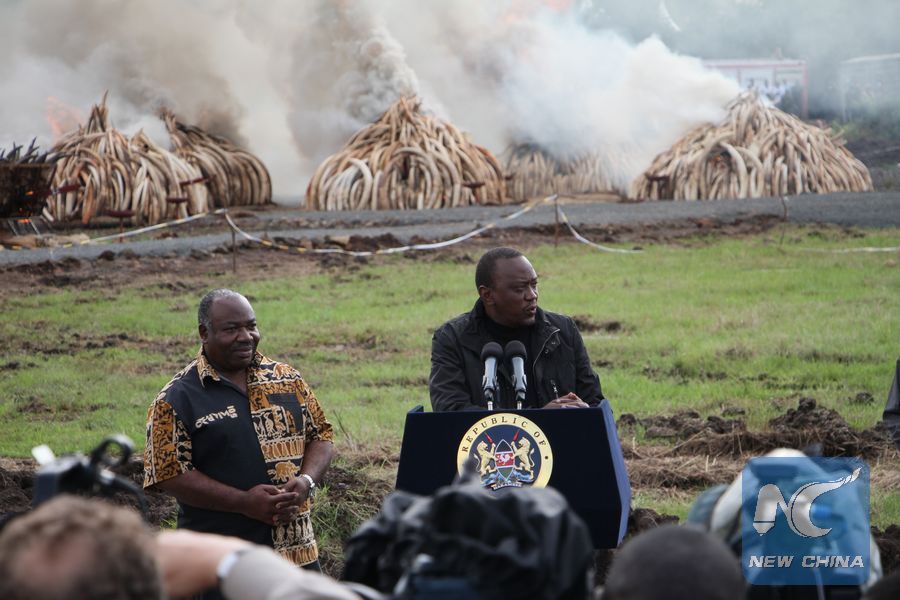
Photo shows the historic torching of ivory and rhino horns at Nairobi National Park in Nairobi, Kenya, April 30, 2016. A total of 105 tons of elephant tusks and 1.3 tons of rhino horns were burned in a ceremony attended by conservation luminaries, business moguls and celebrities from around the globe. (Xinhua/Allan Mutiso)
NAIROBI, Jan. 6 (Xinhua) -- Kenya's government on Friday hailed China's landmark decision to ban domestic trade in ivory products and urged other countries to follow suit in order to save the remaining population of elephants.
Patrick Omondi, the Acting Director for Research in the Ministry of Environment and Natural Resources, said the closure of domestic ivory market in China marked a new beginning in protection of elephants and other iconic species.
"As a government, we applaud China for closing the ivory market and the move will have a significant impact on wildlife conservation," Omondi remarked at a media briefing in Nairobi attended by wildlife campaigners.
China honors its commitment to ending commercial processing and sales of ivory by the end of 2017. The move affects 34 processing enterprises and 143 designated trading venues, with all of them to close, in the world's once largest ivory market.
Kenyan officials and wildlife campaigners noted that China's decision to ban trade in ivory products served as a wakeup call for other countries to outlaw this practice and help save elephants.
"As a country we will be advocating for closure of all ivory markets globally. We have been calling for closure of domestic ivory market in countries like the United Kingdom, Thailand and Japan. We believe the domestic market is used as a window to launder ivory," he added.
Kenya is a member of the African Elephant Coalition that has lobbied for total ban on ivory trade to help save the giant mammals that roam the continent's vast jungles.
Omondi said that besides supporting ivory trade ban, Kenya has enacted sweeping legislation while adopting innovative measures to protect elephants from human predators.
"In the last three years, we have witnessed an 80 percent decline in poaching after enacting punitive legislation to contain the vice," Omondi said.
Meanwhile, Kenyan wildlife campaigners welcomed China's ivory trade ban, terming it a giant step towards eradicating poaching in the region.
Jim Nyamu, the Executive Director of Nairobi-based Elephants Neighbors Centre, said the closure of ivory market in China has inspired campaigners to reach out to grassroots communities and educate them on the need to conserve their wildlife heritage.

